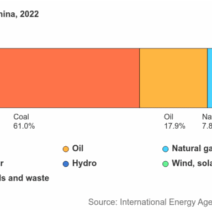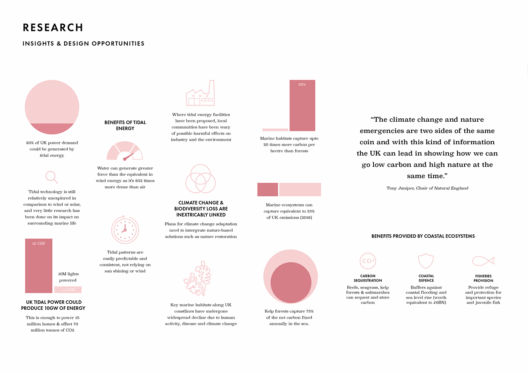The intricate and multifaceted relationship between plastic manufacturing and global warming warrants a critical examination. While plastics are ubiquitous in modern society, serving a myriad of functions ranging from packaging to automotive parts, their production has hefty ramifications for the environment. This exploration delves into how the manufacture of plastics contributes to climate change, emphasizing the urgency for a paradigm shift in our approach toward plastic reliance.
To commence, understanding the life cycle of plastics is crucial. The journey begins with the extraction of fossil fuels—primarily crude oil and natural gas—which are the precursors for most plastic products. The extraction process itself is energy-intensive, releasing significant amounts of greenhouse gases (GHGs) into the atmosphere. It is estimated that this initial phase contributes approximately 4-5 percent of global GHG emissions. The extraction is only the tip of the iceberg; the subsequent refining and processing stages amplify the carbon footprint associated with plastics.
Once fossil fuels are extracted, they undergo a conversion process to become synthetic resins, the building blocks of plastics. This phase is emblematic of one of the most energy-demanding segments of the lifecycle. The polymerization processes that create polymers release not just exhaust but also volatile organic compounds (VOCs), which can impact both air quality and public health. Every stage in this elaborate supply chain not only compounds emissions but also serves as a stark reminder of the ecological cost of convenience.
Furthermore, the manufacturing of plastics is typically associated with the burning of fossil fuels. Factories utilize energy derived from non-renewable sources to operate machinery and maintain the necessary temperatures for processing. In fact, the Global Plastics Alliance estimates that plastic production could double by 2030, further exacerbating the environmental challenges we face. Each new facility established to produce plastics serves to deepen the footprints we leave behind in terms of carbon emissions.
Moreover, the implications extend beyond the immediate outputs of carbon dioxide. As plastic products are created in high volumes, numerous toxic substances are released as by-products of the processes involved. These chemicals are not only hazardous to the environment but can also have grave impacts on human health. Persistent organic pollutants (POPs), for example, have been linked to endocrine disruption and other serious health issues. The fallout does not merely affect the factory workers; it permeates the surrounding communities, illustrating the need for stringent regulations in plastic production.
Adding another layer of concern is the issue of plastic waste. The vast majority of plastics produced are not biodegradable, leading to massive amounts of waste accumulating in landfills and oceans. Decomposing plastics can release methane, a greenhouse gas with a global warming potential significantly higher than carbon dioxide. Studies suggest that the plastics already present in our ecosystems could result in 1.5 gigatonnes of CO2 equivalent emissions released over the next 100 years. This means our past reliance on single-use plastics continues to haunt us as we navigate our path forward.
The cycle of consumption further fuels the problem. Single-use plastics—found in everything from food packaging to shopping bags—are particularly egregious. These products are manufactured at a rate that far exceeds the capacity for recycling or sustainable disposal. The plea for a shift in consumer behavior is imperative. Engaging in simple practices such as adopting reusable containers or supporting biodegradable alternatives can mitigate individual contributions to the global plastic crisis.
In response to these issues, many advocates are calling for regulatory measures aimed at curbing plastic production. Initiatives such as bans on plastic bags and policies encouraging companies to utilize biodegradable materials are gaining traction around the world. The transition toward a circular economy—one in which waste is minimized, and resources are repeatedly reused—fosters a paradigm shift that can disengage society from its outdated reliance on fossil fuel-derived products.
Economists and environmentalists alike assert that the demand for renewable energy sources in plastic production must be prioritized. Innovations in bioplastics, derived from renewable biomass sources like corn starch and sugarcane, present promising alternatives. However, the transition from petroleum-based plastics to sustainable bioplastics is not merely a technological challenge; it necessitates widespread societal support and commitment.
Education plays a fundamental role in combating plastic dependence. The importance of public awareness campaigns cannot be overstated. By educating communities about the environmental impacts of plastic manufacturing and alternatives available, advocates can empower individuals to take action. Schools, local governments, and nonprofits must collaborate to foster a comprehensive understanding of how individual choices contribute to the collective crisis.
In conclusion, while plastics serve many utilitarian purposes in contemporary society, their unchecked production and consumption carry grave implications for our planet and climate stability. The breadth of environmental and health repercussions tied to plastic manufacturing calls for immediate and concerted action across multiple sectors. Accepting the plastic paradox—where our quest for convenience leads to unparalleled ecological costs—is no longer an option. As the climate crisis intensifies, redefining our relationship with plastic emerges as not just an environmental necessity but an ethical imperative. With concerted efforts and a commitment to innovation, it is possible to thwart the negative ramifications of plastic dependency and attenuate its contribution to global warming.







